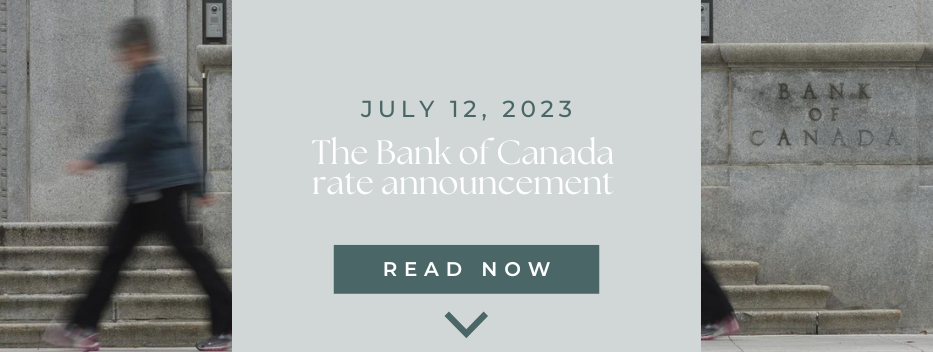The Bank of Canada announced its latest interest rate decision this morning, along with new economic projections. Unsurprisingly, the benchmark rate increased a quarter percent, bringing the central bank’s key rate to 5% and the bank prime rate to 7.2%.
Canada’s annual inflation rate fell to 3.4 % in May, but less-volatile measures suggest prices are still rising rapidly. Policymakers are weighing concerns about stubborn inflation against mixed signals about the economy’s strength. Robust demand and tight labour markets are causing persistent inflationary pressures in services. The Bank of Canada needs unemployment to rise so that economic growth can stall.
The central bank also pushed out its timeline for getting inflation under control. The next interest rate announcement is September 6, 2023.
The prime rate, which lenders use to calculate interest rates on variable-rate mortgages and home-equity lines of credit, has risen substantially since 2021. Most variable-rate payments will increase to reflect this change. But if your mortgage is with BMO, CIBC or TD, your payment will only increase if you reach a trigger rate. A trigger rate is the interest rate level where your lender will adjust your payment amount, even though it typically doesn’t change with the prime rate. If you need advice on your variable-rate mortgage, don’t hesitate to reach out to explore your options.



